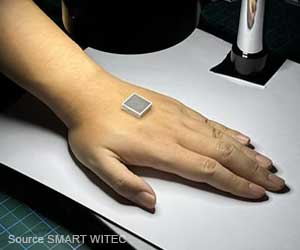The Harvard team has implanted mouse brains with a rolled-up, silky mesh studded with tiny electronic devices that unfurls to spy on neurons.

The scientists also struggle to track the same neuron over a long period, because individual cells move when an animal breathes or its heart beats. The Harvard team solved these problems by using a mesh of conductive polymer threads with either nanoscale electrodes or transistors attached at their intersections.
The team of physicists, neuroscientists and chemists has implanted mouse brains with a rolled-up, silky mesh studded with tiny electronic devices, and shown that it unfurls to spy on and stimulate individual neurons. Free space makes up 95% of the mesh, allowing cells to arrange themselves around it. The implant has the potential to unravel the workings of the mammalian brain in unprecedented detail. “I think it’s great, a very creative new approach to the problem of recording from large number of neurons in the brain,” says Rafael Yuste, director of the Neurotechnology Center at Columbia University in New York, who was not involved in the work.
“If eventually shown to be safe, the soft mesh might even be used in humans to treat conditions such as Parkinson’s disease,” said Charles Lieber, a chemist at Harvard University on Cambridge, Massachusetts, who led the team.
The work was published inNature Nanotechnology on 8 June.
 MEDINDIA
MEDINDIA




 Email
Email







